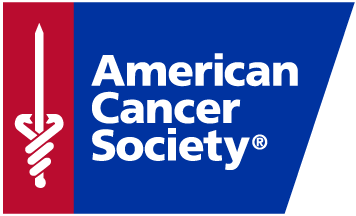- About Us
- Advertise / Support
- Editorial Board
- Contact Us
- CancerNetwork.com
- TargetedOnc.com
- OncLive.com
- OncNursingNews.com
- Terms & Conditions
- Privacy
- Do Not Sell My Information
- Washington My Health My Data
© 2025 MJH Life Sciences™ and CURE - Oncology & Cancer News for Patients & Caregivers. All rights reserved.
Patients on Medicaid Disproportionately Affected by Drug Shortage

Brielle Benyon, Assistant Managing Editor for CURE®, has been with MJH Life Sciences since 2016. She has served as an editor on both CURE and its sister publication, Oncology Nursing News. Brielle is a graduate from The College of New Jersey. Outside of work, she enjoys spending time with family and friends, CrossFit and wishing she had the grace and confidence of her toddler-aged daughter.
Patients insured by Medicaid may be more likely to be affected by the ongoing cancer drug shortage, according to a recent survey.
A new survey conducted by the American Cancer Society Cancer Action Network (ASC CAN) found that many patients in active cancer treatment reported being affected by the ongoing drug shortage, with patients insured by Medicaid being disproportionately affected.
“One of the most salient insights that we received here is that this is not affecting everybody equally,” Mark Fleury, policy principal for the ACS CAN said in an interview with CURE®.
The survey, which was conducted in September 2023, included survey responses from 1,222 patients and survivors of cancer who have been diagnosed with or treated for cancer within the last seven years. The findings showed that while 10% of overall patients in active treatment were affected by the chemotherapy shortage, patients insured by Medicaid were more impacted by it, with 18% stating that they were affected.
“We have a very tight supply chain. There’s really no buffer there, so every vial that’s made has to be distributed,” Fleury explained. “There are (cancer treatment) sites that are large enough to have someone keep an eye on shortages, but not every institution has that. … It seems that institutions that are maybe smaller or have fewer resources or personnel to be chasing down these drugs are the ones that are the most impacted. And institutions with less resources oftentimes are serving patients with less resources as well.”
Fleury mentioned that cancer drug shortages put unnecessary stress on patients and their families during an already stressful time, and patient-provider communication is key.
“Patients (should have) individual conversations with their providers about how to move forward, and obviously every patient and every cancer type is different. Some have appropriate solutions, and some don’t.”
Regardless of insurance type, the most common way people were affected by the drug shortage included:
- Delayed or missed treatment (reported by 45% of respondents who were affected, including 38% of this population who faced delays of one month or longer)
- Using an alternate drug (23%; with 68% reporting that they and their medical teams were not able to find an effective substitute)
- Faced difficulty using their insurance to fill a prescription related to the shortage, such as delays in covering an alternative drug (35%)
- Continued the medication with a dose change (6%)
The survey, which was published in October, also included quotes from patients who participated. One individual said, “My doctor’s office only gets enough for one patient a month. I’m currently set to get mine in over six months.” Another person said, “(The shortage) has extended my treatment, which adds to the stress level and horrible side effects.”
More CURE® coverage of the chemotherapy shortage:
- Chemo Shortage Improved But Remains ‘Ongoing Crisis’
- Patient Concerns Around Chemo Shortage Are ‘Valid,’ Pharmacist Says
- The Shared Responsibility to Prevent, Prepare for and Manage Drug Shortages
- Patients Respond to the Ongoing Chemo Drug Shortage
- Here’s How One Cancer Center Is Handling the Chemo Shortage
- Chemo Drug Shortage Requires a ‘Holistic Solution’
- Expert Discusses Chemo Shortage: ‘Likely to Last’ 3 to 4 Months
- Expert Identifies Chemo Shortage as a 'Simple Tragedy of US Health System’
- ·Clinicians ‘Game Planning’ for Pediatric Cancer Drug Shortages
However, some individuals — approximately 40% of those surveyed — said that their issues related to cancer drug shortages have since been resolved and their drug is now available to them.
“I think we may be slowly moving away from reducing the number of patients who aren't able to get the drugs that they need. But I think we're just going up to that slightly better level where the system is still super fragile. And any additional disruptions … could bring us back and patients not getting them,” Fleury said, mentioning that the ACS CAN is investigating solutions that can fix this problem in a more robust way.
“There (are) short term fixes (for) people who need (cancer drugs) today. … It took us years and even decades to get here. It's going to take us years to get us out. So we're looking at both short, shorter and long-term solutions to try and get us away from the brink where we've been living, frankly, for quite a while.”
For more news on cancer updates, research and education, don’t forget to subscribe to CURE®’s newsletters here.

